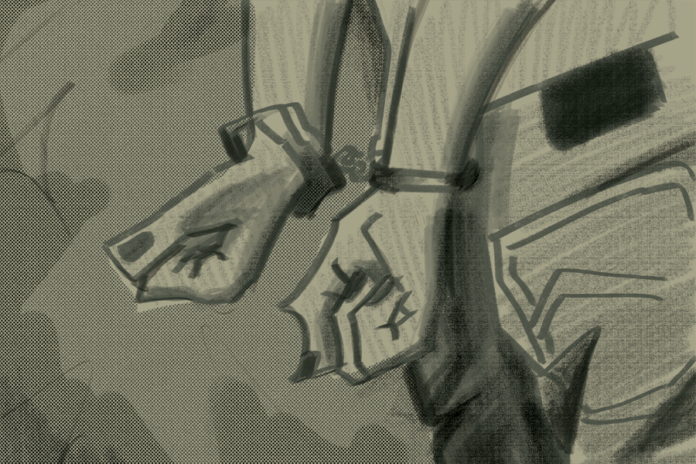Prisons and police are often regarded as a necessity — but it’s important to consider what function they actually serve
By GEETIKA MAHAJAN — giamahajan@ucdavis.edu
For most people, prisons exist as ambiguous entities where “bad people” are sent because they pose a significant threat to most civilians. We are told that the legal system is a necessary feature of society that “punishes” and keeps other citizens in check. This perception of how and why the prison system functions cements this belief that the system itself is essential in order to maintain an organized community — but it oversimplifies a lot of details about how punitive justice works, mainly by implying that it works in any major capacity.
Currently, the justice system is supposed to work like this: a crime is committed, the police come and the perpetrator is given some form of punishment that accurately matches the magnitude of the crime. There is a common belief that this system of post-facto punishment is effective in preventing crime from occurring at all. Sure, the threat of punishment might deter some high-functioning psychopaths. But for the most part, it fails to address any underlying causes.
Incarceration rates have always been higher in areas where economic development is low and in places where there is little access to education or employment. This is not because individuals within these communities are predisposed to criminality, but because these are the socio-economic conditions that precipitate criminal behavior. Thanks to our current justice system, however, there’s no need to actually account for any larger or more fundamental issues that may contribute to crime. There’s a convenient location for people who have been convicted, so that nobody has to worry about them anymore.
Prisons themselves seem almost ubiquitous — it’s difficult to imagine a world without them. Unfortunately, they don’t really do anything except house their inmates for a predetermined period of time, oftentimes in unsanitary or unsafe conditions. The idea that prisons are a necessary facet of law enforcement, or even organized society, stems from the same myth that allows punitive justice to maintain its reputation as an effective weapon against crime: crime is something that starts at the scene of and ends after the punishment is over.
But when studies about the efficacy of in-prison education programs are inconclusive and the employment market significantly discriminates against ex-convicts, it’s difficult to see how prisons do anything but extend the same threads of inequality without providing any kind of solution for the issue of criminality at all.
Obviously, this line of thinking leads to a lot of whataboutisms and questions. What about serial killers and sex offenders? Where would they go if it weren’t for prisons? The issue with this line of thinking is that it implies that our current system is in any way competent at how they handle cases of rape and murder. But a system that acquitted Kyle Rittenhouse and George Zimmerman cannot make any claims to providing “justice” or even safeguarding the rest of society.
Prisons and law enforcement exist not for the people, but to preserve a certain status quo; the issues with policing and prisons don’t lie in a few bad police officers, but in the design of the system. It doesn’t rehabilitate or prevent; instead, its sole function is to disguise the broader issues within society by proposing an oversimplified explanation and solution for the problem. If a person is “bad,” they go to jail — and that is the beginning and the end of it.
Written by: Geetika Mahajan — giamahajan@ucdavis.edu




